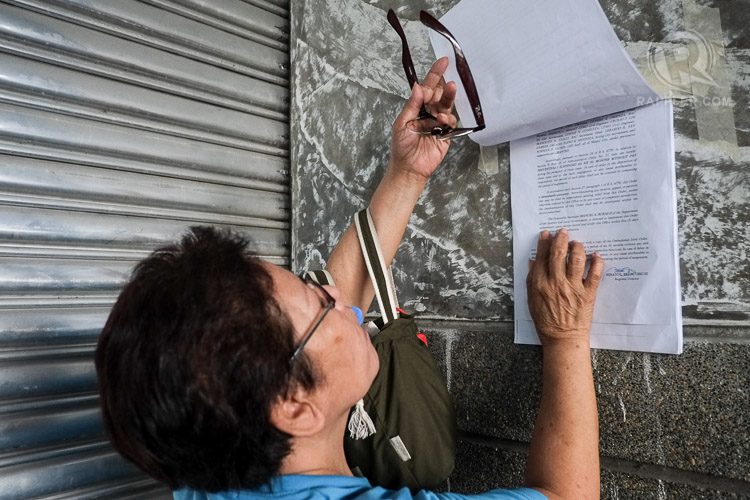SUMMARY
This is AI generated summarization, which may have errors. For context, always refer to the full article.

MANILA, Philippines – It’s not just the legal counsel of Makati Mayor Jejomar Erwin Binay Jr who thinks that Department of the Interior and Local Government (DILG) got it wrong in insisting that the court-issued temporary restraining order on the mayor’s suspension is moot.
Other lawyers share the opinion of Binay lawyer Claro Certeza that it is the court and not the DILG which decides who is the lawful mayor of the country’s richest city.
In a press conference on Tuesday, March 17, Certeza said Binay remains the mayor of Makati because of the temporary restraining order (TRO) that the Court of Appeals (CA) issued Monday on the Ombudsman’s order to suspend Binay.
The Department of the Interior and Local Government (DILG) insisted, however, that Binay remains suspended because the suspension order was already served, and his Vice Mayor Romulo Peña had already been sworn in as acting mayor, a few hours before the TRO was issued.
But Certeza said that the DILG has no basis for its own interpretation of the court’s ruling.
“Dahil mayroong TRO, si Mayor Binay ang mayor ng lungsod ng Makati. At ang maaaring magsabi na hindi na siya mayor, ayon sa batas, ay ang husgado, hindi ang DILG,” he said. (Because there’s a TRO, Binay is Makati mayor. And according to the law, only the courts, not the DILG, can decide whether he is mayor or not.)
Certeza’s statement came about an hour after the Ombudsman also took the DILG’s side, saying the TRO had become moot and academic because “there is no more act to be restrained.”
The DILG had said that it would seek the opinion of Justice Secretary Leila de Lima, but Certeza stressed that, based on the Constitution, judicial power rests solely with the Supreme Court and the courts under it. Only the courts’ interpretation have any bearing on the issue, he said.
“So for as long as it’s a court that decides, that should be followed. Any other interpretation should be ignored, insofar as a legal question is concerned,” he said.
A question of interpretations
Some lawyers also disagreed with the DILG’s interpretation of the appellate court’s ruling.
Father Ranhilio Aquino, dean of the San Beda Graduate School of Law, said on his Twitter account that the TRO applies to the suspension itself, not the service of the suspension order.
“Binay cannot remain suspended, not after the Court of Appeals has issued a TRO. Whether or not the suspension order has been served, whether or not the Vice-Mayor has been sworn in as Acting Mayor, all this is immaterial,” he said.
Aquino added: “What the TRO stays is not the service of the suspension order nor the swearing in of the Vice-Mayor, but rather the suspension itself. The TRO in effect returns things to their last non-contested state, and since the contested state is the suspension, the last non-contested state is the state before suspension. That should be as clear as daylight.”
Meanwhile, lawyer Ferdinand Topacio also said that Section 14 of Republic Act 6770 cannot be invoked to justify the DILG’s interpretation.
Section 14 states: “No writ of injunction shall be issued by any court to delay an investigation being conducted by the Ombudsman under this Act, unless there is a prima facie evidence that the subject matter of the investigation is outside the jurisdiction of the Office of the Ombudsman.”
Topacio pointed out that Section 14 applies to investigations, not suspensions.
“Investigations cannot be enjoined. But suspensions, which are the effects of investigations, may be,” he said on Twitter.
He added that the DILG’s argument that the TRO cannot take effect on an order that has already been enforced is not valid.
“Suspension is a continuing act, and may be enjoined while its implementation subsists. It cannot be subject to the argument of fait accompli,” he said. – Rappler.com
Add a comment
How does this make you feel?
There are no comments yet. Add your comment to start the conversation.